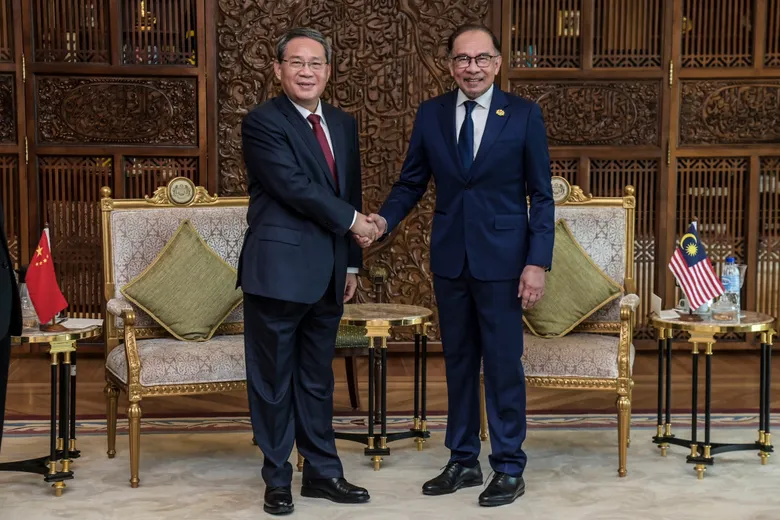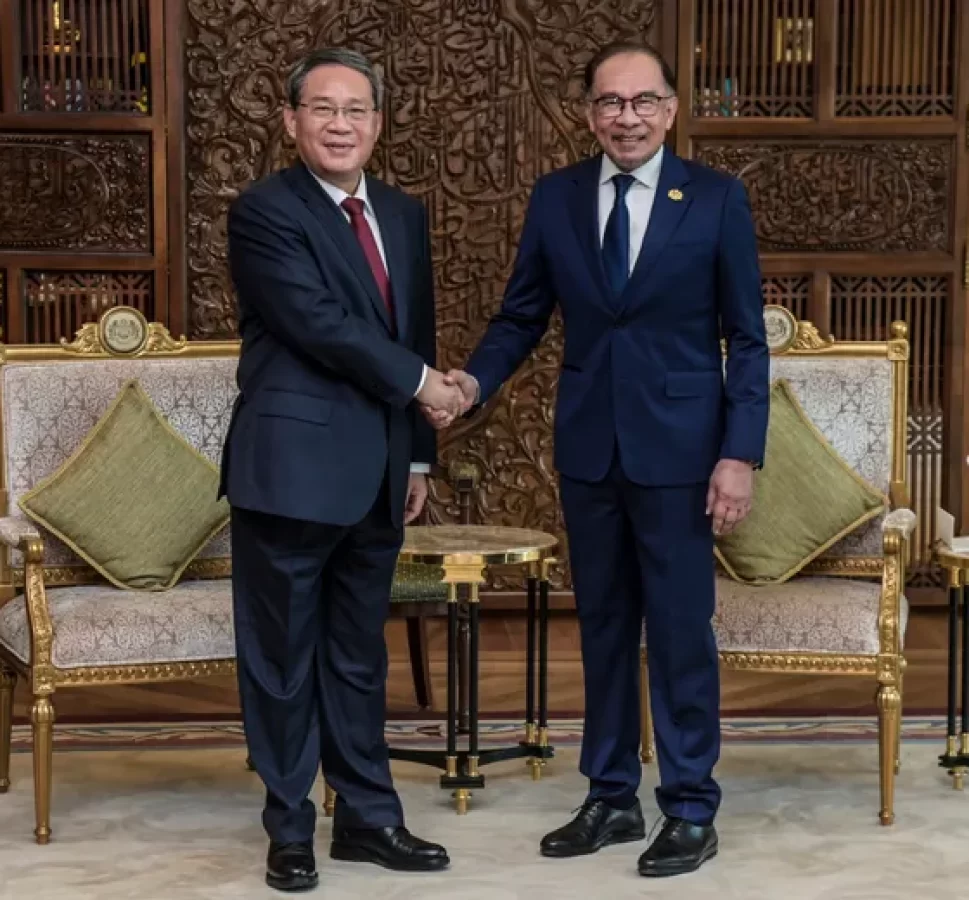
Ahead of visit by China’s Li, the Malaysian PM expressed a desire to join Global South countries in the BRICS alliance.
China and Malaysia have agreed to renew a five-year economic and trade cooperation pact.
The deal, which will deepen relations between the two countries as they mark 50 years of diplomatic ties, was inked during a trip by Chinese Premier Li Qiang on Wednesday. The visit to Malaysia’s administrative capital Putrajaya was the last leg of a regional trip intended to expand China’s influence in the Asia Pacific as geopolitical tensions with the United States rise.
“China is ready to work with Malaysia,” said Li as his host, Malaysian Prime Minister Anwar Ibrahim, rolled out the red carpet for his arrival the previous evening.
“China is advancing Chinese modernisation on all fronts through high-quality development. Malaysia, on its part, is promoting national development …”
Following private talks, the two leaders witnessed the signing of various pacts, including the economic and trade deal. Officials said that the pact would bolster links between industries in priority sectors like high-level manufacturing and the digital economy.
Other agreements signed aim to promote investment in green development, combat transnational crime, and boost housing and urban development, higher education, people-to-people exchanges in science and technology, tourism and cultural cooperation, Anwar’s office said.
‘Glimmer of hope’
While trade topped the agenda publicly, Anwar’s comments ahead of the talks hinted at the geopolitical dimension.
In an interview aired before Li’s visit, he told Chinese media that Malaysia planned to join the BRICS bloc of developing economies once it had received feedback from current chair South Africa on its expression of interest.
He expressed support for the bloc’s Global South agenda, taking aim at a “Western narrative” on Israel’s war on Gaza, which he said focused excessively on Hamas’s October 7 attack on Israel.
The rise of China, he said, “brought us a glimmer of hope that there are checks and balances in the world”.
During Li’s three-day visit to Malaysia, which follows visits to New Zealand and Australia, Kuala Lumpur and Beijing are also expected to discuss the prickly issue of territorial claims in the South China Sea.
Malaysia, along with Vietnam, Brunei, the Philippines and Taiwan, disputes Beijing’s claims to almost the entire South China Sea.
However, unlike the much-publicised clashes between the Philippines and China, Malaysia’s government prefers diplomatic channels and rarely criticises Beijing, even when Chinese coastguard ships have sailed near Malaysia’s waters.
This is partly intended to protect economic ties. China has been Malaysia’s largest trading partner since 2009, with total trade last year reaching 450.84 billion ringgit ($98.90bn).
Malaysia’s Foreign Minister Mohamad Hassan said the country was seeking to “build” on cooperation established in the mid-seventies. “The good ties we have enjoyed since will allow us to manage and resolve any issue amicably,” he was quoted as saying by The Star newspaper.
Li is also expected to meet Malaysia’s king, Sultan Ibrahim, and attend a groundbreaking ceremony at a construction site for the East Coast Rail Link (ECRL), part of China’s Belt and Road Initiative on Wednesday.






